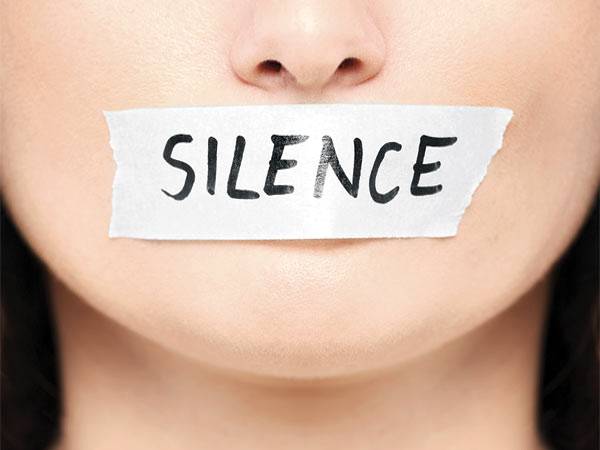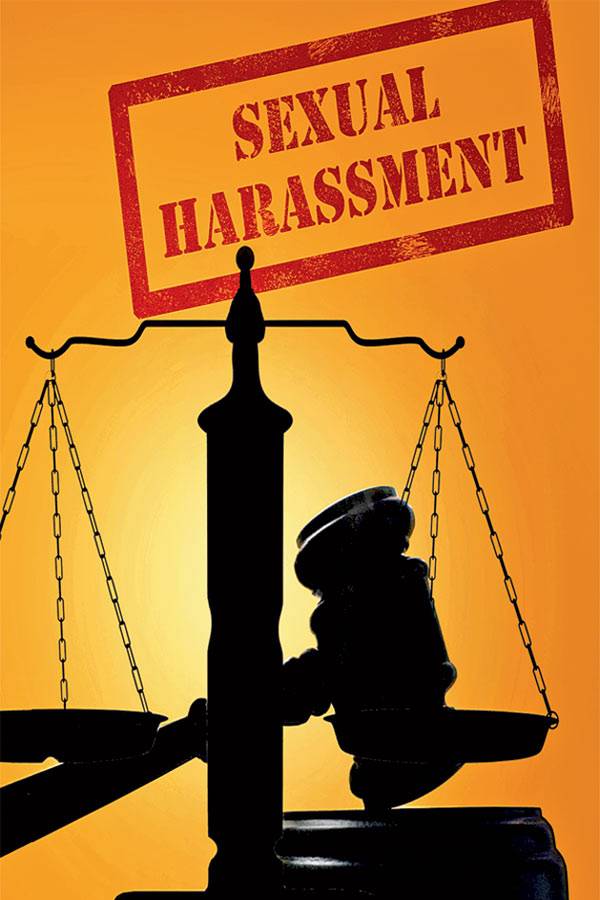Is your boss giving you more than just that friendly tap on the shoulder for a job well done?
Are you dreading to go to work because of a colleague's constant attempt to make a pass at you? It's time you spoke up about it. For many women today, this is how it plays out. The work atmosphere is getting to be a hotbed of hostility — everything from unwanted furtive glances to inappropriate 'touching' and outright asking for sexual favours in lieu of work. The ongoing controversy — of an anonymous post by a former employee of The Viral Fever (TVF) accusing its CEO and founder Arunabh Kumar of allegedly molesting her — has brought the issue to the fore. While no formal complaint has been registered as yet, the issue has made people sit up and take notice. Cases of sexual harassment at the workplace have one thing in common — the absolute silence that encompasses women who suffer it. While staying quiet may seem like the only way out, experts urge women to wake up and speak out as this can save other individuals.
There can be different kinds of sexual harassment. Explains psychologist Malini Krishnan, "It could be anything, even something as basic as a persistent glance. Harassment could begin in the garb of friendship — starting with a simple statement from a colleague saying 'lets hang out'. Then, when your guard is down and you trust the person, it crops up. The person might then say inappropriate things or touch you without your permission." So how does one catch it at the onset? "First of all, be very aware of what you are feeling during any interaction. Then, act as per that feeling. If you are unsure of X, just walk away. Or just say no politely. The sooner we are assertive and refuse, the better we are able to protect ourselves. So, keep a watch on your inner voice and stay aware of what you are instinctively feeling," she advises.
Why victims don't speak up

There are many reasons to this. Many women won't speak out because it could affect job opportunities for them. Affirms clinical psychologist Anisha Jain, "Women who are victims of such harassment are scared that it will affect their job chances. They dread feeling awkward when they have to return to their workplace. Often, colleagues can also make it difficult for them and be insensitive even without intending to. They may also not want to speak up as they are ashamed of what has happened. They don't want others to know 'yeh mere saath hua hai'. The next thing on their minds is the fear of being judged. The women may feel, 'will society think that I did something to encourage or provoke it?' So there is a huge fear of being misunderstood, sadly even by colleagues. Also, when victims talk about what they have gone through, they have to relive the whole experience. When one is afraid of something, he or she wants to just run away from it as is human nature." However, she adds that all said, it's time women speak up. "I had a couple of cases where the women came forward to reveal they were sexually harassed at work. They had complained to the sexual harassment cell and action was taken. Thus, what is imperative is for corporates to take action on behalf of the complainant. Remember, such a person has taken the courageous step to come forward, but they need to follow up for prompt action." Underlining the importance of this, Malini says, "I have come across a few cases of young women who were sexually abused by family members. Even after they spoke up, the matter was kept under wraps and considered to be 'all in the family.' No action was taken against the perpetrator. So, why just talk about the workplace? This happens anywhere and it's very unfortunate when people don't do anything about it."
Social media is a sounding board, but it's not enough
Today, many women have spoken out on social media like Facebook and Twitter, recounting their own experiences of sexual harassment. In a sense, it has given them a sounding board and a space to find solace. Anuradha Kharat, who works with an organisation that handles crises calls for sexual harassment at the workplace in Mumbai, says calls for help are on the rise in the city. "Victims call in and share what has happened with them. Very often, they are depressed. They usually write about it on social media. But when they call us, they ask us what else they can do. We tell them to report the matter to the Vishakha Committee and confide in a family member or close friend about it. These two steps are very important for them."
Lawyer speak: Vishakha Committee plays a crucial role

It is now necessary for every workplace to have a Vishakha Committee to secure the rights of women and prevent sexual harassment at the workplace. Lawyer Mrunalini Deshmukh says it plays a crucial role. "The aim of the Vishakha Committee is to give a lady maximum security. It requires that there should be a Complaints Committee that comprises two or three people from the said organisation and two people from outside so that it's balanced and independent. In turn, the committee will talk to the complainant (where the complainant can talk independently without fear) and to the accused, so there is a first-hand view from both parties. Relevant witnesses may be called forward, too. If it comes to the conclusion that there is substantial evidence of harassment, only then can it refer the case for further remedies. Remember, the Vishakha Committee is not a court of law, but an effective method under the guidelines given by the Supreme Court and the Sexual Harassment Act, 2013. Thus, at this point, it is very important to have a thorough detailing and investigation by this committee and it plays a crucial role at workplaces today to arrive at the truth. We must understand that the truth could be either ways — there are also cases of women harassing men at the workplace though on a majority, women are the victims. This committee helps to substantiate things and come to the basis of the truth," she explains.
The Vishakha Guidelines Against Sexual Harassment In The Workplace Definition
Sexual harassment includes unwelcome sexually determined behaviour (whether directly or by implication) as:
- Physical contact and advances
- A demand or request for sexual favours
- Sexually coloured remarks
- Showing pornography
- Any other unwelcome physical, verbal or non-verbal conduct of sexual nature
Planning to send a colleague indecent imagery? You can be booked
Under the Indecent Representation of Women (Prohibition) Act (1986), if an individual harasses another with books, photographs, paintings, films, pamphlets, packages, etc. containing 'indecent representation of women', they are liable for a minimum sentence of two years. Says lawyer Siddhartha Shah, "There is also a proviso under section 354 of the Indian Penal Code, which is very clear regarding outraging the modesty of a woman. This is punishable for a term not less than two years and shall also be liable for a fine, depending on the gravity of the offence."
Flip side: Women can take advantage, too
Yes, sexual harassment cases at workplace are true, but women also manipulate things to their advantage, says clinical psychologist Varkha Chulani, "Let's not forget that some women can construe anything friendly as harassment. They can also misinterpret messages. Sometimes, a male colleague or senior could just be giving an honest compliment and not making a suggestive overture. There's no need to be harrowed if that happens. What is worrisome is that today, the law is skewed in a woman's favour. If a woman is a paranoid personality and alleges sexual harassment, it can ruin another person's life. Women do not realise this. I think they need to look within and act wisely."
